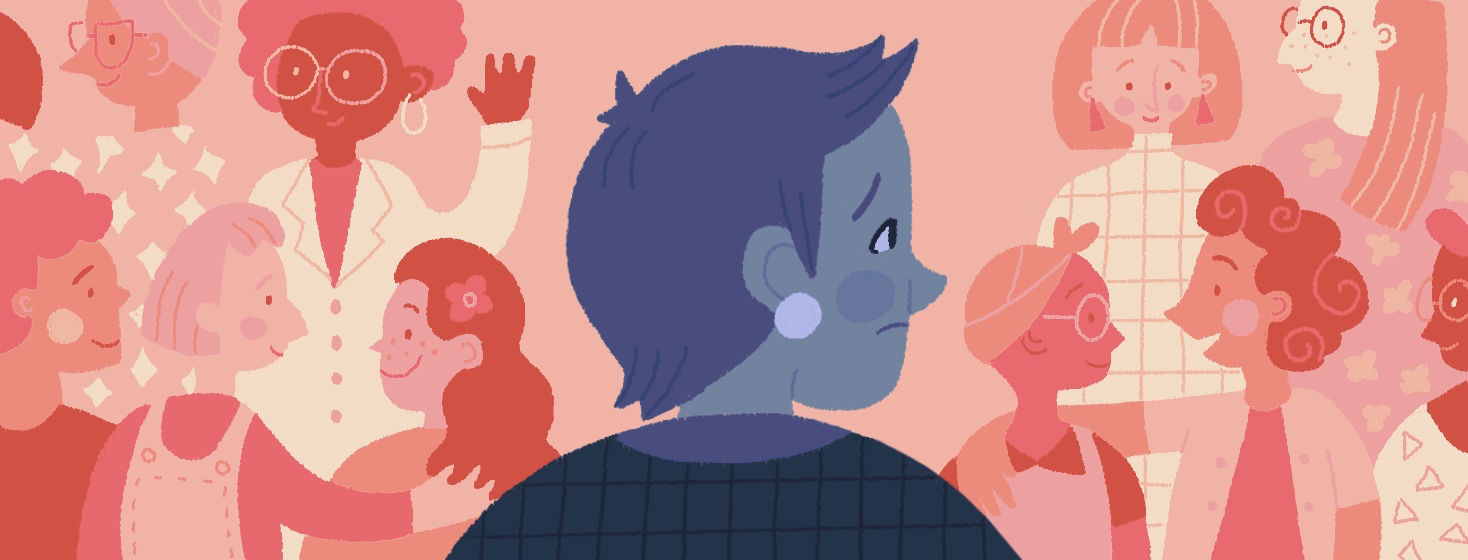Why I Joined a Lupus Support Group
At my very first support group meeting, I walked into the Italian restaurant with sweaty hands. Not even the aroma of garlic bread and marinara sauce could settle the nervousness in my stomach. I asked the hostess to show me the table reserved for the lupus support group. My voice barely registered above a whisper in the crowded restaurant. The hostess pointed to the back of the restaurant. I took a deep breath and headed towards one of the tables with candles flickering on the centerpiece. Four ladies sat around it sharing breadsticks.
I was hesitant to share my lupus diagnosis
During the first 4 years I lived with lupus, I told very few people I was sick. I worried that if my colleagues knew about my poor health, they would see me as less capable. I worried that new friends would react negatively to my illness, so I simply didn’t tell them. Keeping my struggles to myself seemed safer than opening myself up to hurtful words or assumptions. But over the years, the secret I kept grew inside me like a tumor. It became harder and harder to make light conversation with friends when I was so exhausted I could barely stand. I hated spending extra time in the morning applying makeup to hide the dark circles under my eyes and wrangling my thinning hair into an updo. Keeping my disease a secret began to feel as insurmountable as trying to hide an elephant under an area rug.
My search for a lupus support group
When I searched the internet for lupus support groups in my area, I found a local chapter of the Lupus Foundation of America. The group leader’s name and number were listed underneath. My finger hesitated over the call button before I dialed the number. My opinions about support groups had been informed mostly by sappy Hallmark movies in which people sobbed in a circle about how awful their lives were. Copious hugging and excessive tissue use always made me wonder if these films were secretly funded by Kleenex. I vowed to hang up the phone if the person on the other line asked me how I was “really feeling.”
But the woman who answered my call, L, seemed happy and confident. She didn’t pry into my personal life or ask me to talk about my feelings. She didn’t begin sobbing halfway through the call or offer to pray for me. L told me that she had lived with lupus for 20 years. In that time, she had survived kidney disease and central nervous system issues. She spoke calmly and matter-of-factly – the same way I did on the rare occasion I talked about my own disease. Then she gave me the date and time of our next meeting and the name of the restaurant.
My support group experience
As I walked closer to the table, L looked up. “Are you Meghan?” she asked, then pulled up a chair. Although I was the youngest one there, the other women made me feel welcome. Each of us spoke briefly about our experience with lupus, but mostly we talked about our families, our friends, and our favorite books. Because it was the meeting before Christmas, we each put a gift in the middle of the table and drew numbers for a gift exchange. When one woman unwrapped her gift the wrapping paper caught the candle flame, L doused it with her glass of water. The table burst into laughter. “We’re not complainers here,” L reassured me.
Thankful for the support
It’s been 9 years since I first walked into that Italian restaurant nervously clutching my purse. Although my work schedule prevents me from attending every meeting, I always look forward to seeing my lupus friends when I can attend. We celebrate Christmas each year at a restaurant, but more commonly meet at a special room in a nearby hospital. Whenever I need advice about a new medication or just to vent, I have a group of smart, strong lupus survivors I can turn to. Over time, I’ve realized the true meaning of a support group, and it’s nothing like a Hallmark movie. A support group is a place where I don’t have to hide my illness. It’s an opportunity to learn from survivors who have been down the path I’m traveling and know where all the potholes are. I couldn’t be more thankful that when I called, L answered the phone.

Join the conversation